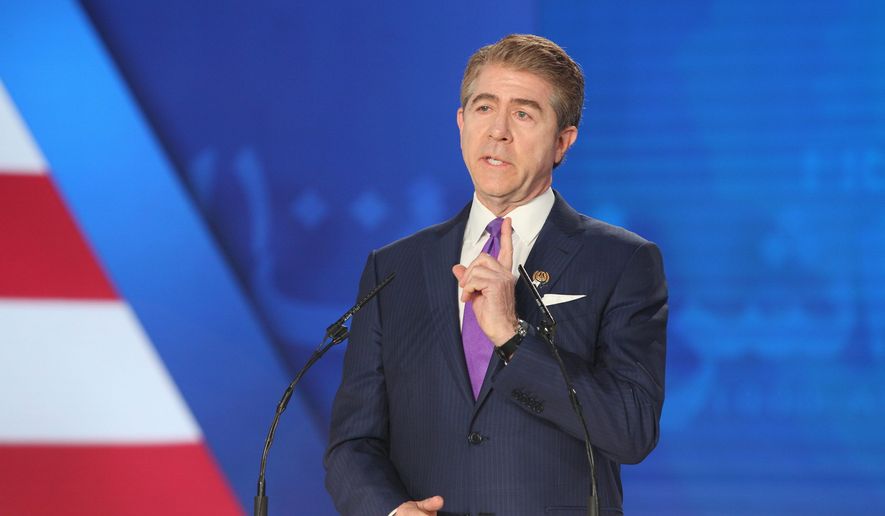Residents of Ashraf 3, Mujahedeen e-Khalq, it is my honor to stand before you and greet you for the second time and to be in this wonderful country of Albania for the second time, but for the first time in Ashraf 3. Clearly this is an engineering and construction feat that shows how smart, how talented, how driven, how capable the residents are, so congratulations. That’s just one point.
Secondly, as you come in the entrance to this great facility you see that this is a message. It’s a symbol to the regime in Tehran that you have tried and tried and tried and you have failed to stop the resistance. It’s a major symbol.
However, those two things are not the significance of Ashraf 3, in my humble opinion. If you heard Madame Rajavi this morning, she talked about a curtain of obscurity, an obscuring curtain. I heard that phrase and I know what you’re saying. Like many of you, I have looked into the allegations and the terrible things that have been said by the regime and by people in the West about the MEK and about the NCRI. As you know, the allegation of terrorism has been completely debunked. It is gone, thanks to the work of four major court cases in France, the UK, the European Union and the United States and other research. We now know that no member for three generations of the resistance has ever been prosecuted or convicted of terrorism in a country ruled by the rule of law and due process. Not one person ever.
Unfortunately, the obscuring curtain remains. We hear, “They are a cult. You shouldn’t deal with them, they are a cult.” Really? And how can we prove whether this is true or not? It’s a human rights allegation that says that you, the residents of Ashraf 3, do not have the permission to think for yourselves because someone is telling you what to do. This is the reason, ladies and gentlemen, that the United Nations Secretariat insisted that they could not interview the residents at Camp Ashraf in Iraq. They would not be free to speak for themselves. All because of that obscuring curtain, the allegation of cult, they had to be moved into this prison called Camp Liberty.
Well, let me tell you what the significance of this place is. I’ve been here for three days now. Like many of my friends, we had a dinner with a hall full of women from the Mujahedeen e-Khalq. Only women for one evening. We walked under the stars. We spoke to them personally, privately. We heard amazing stories of courage, of conviction, of pain, of separation, of the choice of a lifetime. These were the actions of people who are stronger than me, who have a major part, who have a mission in life and who have made a choice, and they are dedicated to keeping that choice. Ladies and gentlemen, the obscuring curtain has been removed today. Never again should we hear the allegation of cult. It is gone forever. You are free. It’s finished.
There is one more element behind the curtain. And that is because the regime has been accusing the Mujahedeen of being a human rights violator. But the biggest allegation of all is right here in Ashraf 3. It is the gross abuse of human rights. It is the crimes against humanity which are documented not only in your exhibits here but in your personal stories. Right now, the curtain of obscurity on human rights has been completely stripped away. Not only are the residents people of free will speaking for themselves with courage and with honor, dedicated to their countrymen of Iran, but they bear witness as Director Freeh said so well. They are the evidence that this regime is a monstrous regime, as Ingrid Betancourt said, that must be brought to account.




Please read our comment policy before commenting.